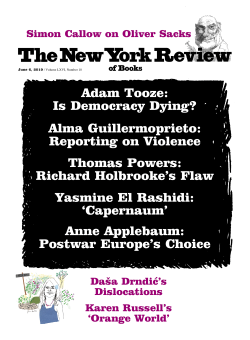In response to:
Staying On from the April 4, 2019 issue
To the Editors:
Max Hastings’s “Staying On” [NYR, April 4] is an essay blighted by prejudice and redolent of the stuffiest traditions of British self-regard. Euphemisms abound: Hastings describes the British departure from India as “messy,” a qualifier that far understates the callousness with which the outgoing rulers partitioned their territory, producing one of the worst catastrophes of the twentieth century, in which over 10 million people were displaced and at least a million were killed. He tries to draw sympathy for “our forefathers” (he seems to assume that his readers are also British) by pointing to the hardship of their positioning: “they struggled to muster four for bridge or tennis.” “It was a struggle to keep a legion of servants up to the mark,” Hastings writes, but not to worry: “if some servants failed to satisfy their masters and mistresses, others became beloved members of the family.” None of this is even to broach in sufficient detail the disturbingly prurient interest Hastings takes in the sexual lives of British colonialists, and the way that he papers over relationships that were undoubtedly marked by coercion. A sentence like the following—“amid the desperation of the junior ranks of the ruling caste for sexual relationships, in the first eighteen years of the nineteenth century 380 girls from a Calcutta orphan school, mostly Eurasian (Anglo-Indian), married British men”—is simply stated as if the real problem were the supposed needs of British men.
Hastings briefly concedes atrocities and racism, but in the time-honored fashion of apologetics, sets these in “balance” against liberal constructions such as the judiciary, civil service, and universities—as if South Asians were not themselves capable of fashioning bureaucracies, systems of education, and forms of administering justice without forcible, violent British intervention. (Surprisingly he neglects the usual point of colonial pride, the extensive system of railways—frankly a more significant achievement.) Possibly worst of all is the romantic conjuring of India as a “stupendous country,” a psychic salve for the British whose home life otherwise would have consisted of “commuting from terraced villas to dreary offices.” Nothing could be more damning an indictment of Hastings’s worldview: that for nearly a century of British domination, an entire subcontinental landmass and its people existed to give the British a sense of fun.
Nikil Saval
Philadelphia, Pennsylvania


